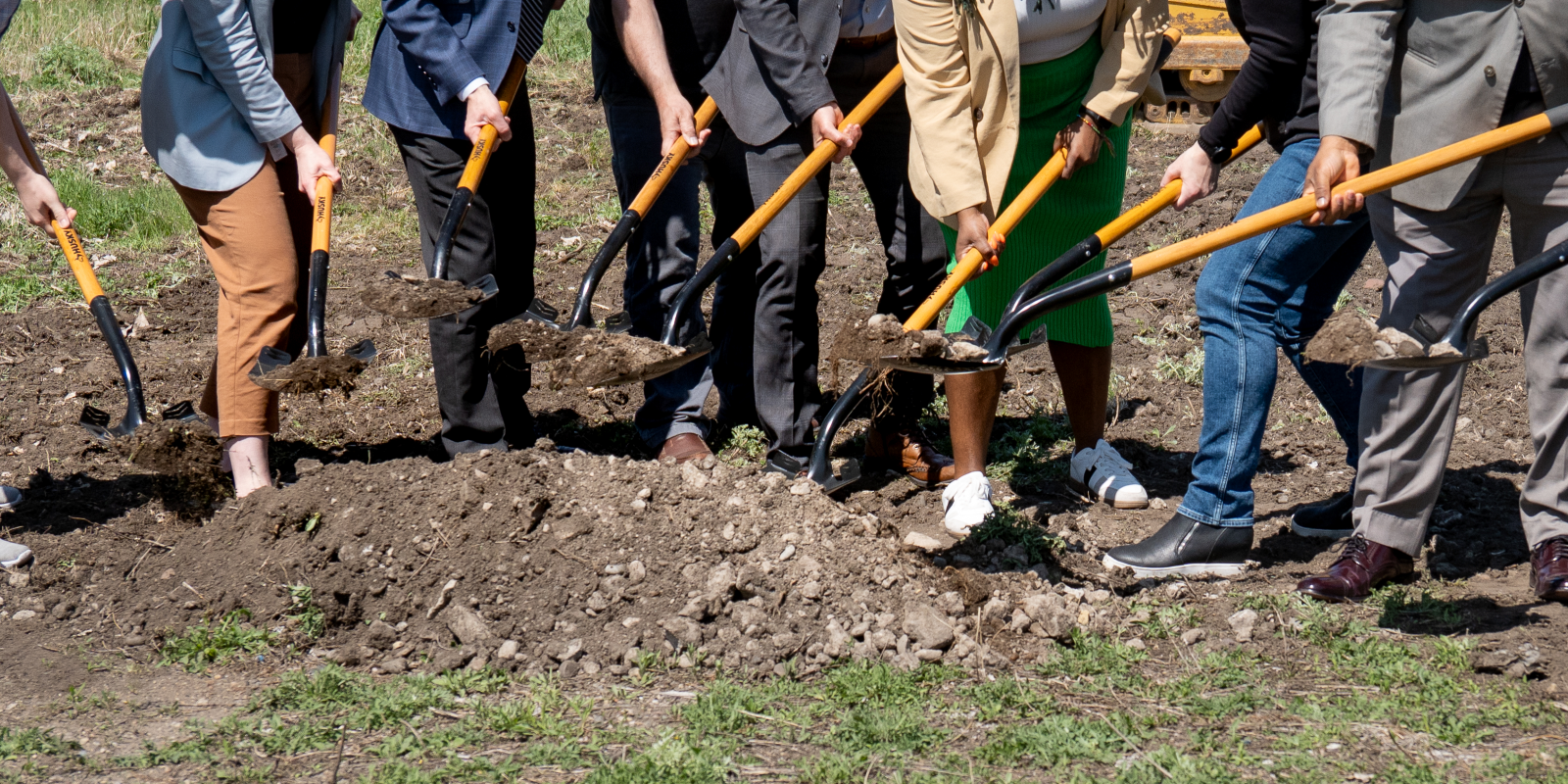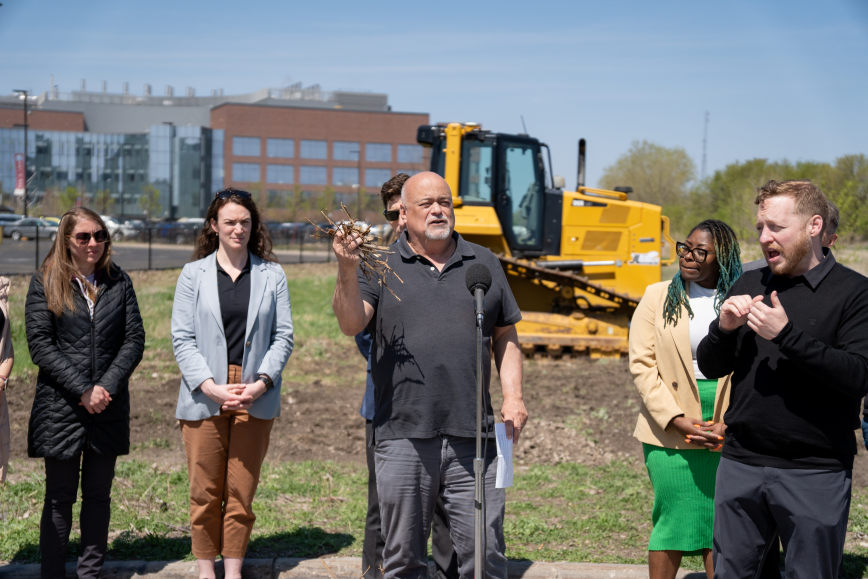Biochar

City of Minneapolis breaks ground on biochar facility
How biochar works
Process
Biochar is a specialized charcoal created by heating wood up to 700 degrees. Heating the wood changes its structure by creating small pores.
It helps the environment by:
- Acting as a sponge that holds nutrients and water in the soil
- Pulling carbon out of the air and storing it in the soil for centuries
Types of biochar
Biochar comes in many shapes, sizes and types. We can produce biochar different ways to help the environment.
Biochar types can vary based on:
- The type of wood or material that is used
- The temperature it’s heated to
- The amount of time the material is heated
Reducing wood waste
Minneapolis is currently losing tree canopy cover due to the Emerald Ash Borer. The removal of ash trees increases wood debris.
We will use this infested wood to produce biochar to decrease:
- Carbon emissions
- Environmental issues
Biochar facility
What facility will do
- The facility will receive up to 3,600 tons of wood waste.
- We will be able to convert the waste into 500 tons of biochar each year.
- The International Biochar Initiative (IBI) Certification Program will certify our biochar.
- The biochar will go through a series of tests for certification.
Timeline
- Spring/Summer 2024: City did site design for the facility. Permit and approvals complete.
- April 30, 2025: Broke ground on biochar facility.
- Summer 2025: We will finish construction and start production operations.
Low levels of emissions
The production machine we will use creates very low levels of emissions.
Our facility will use natural gas to bring the system up to the target heat level:
- This will take 15 to 30 minutes once per day.
- When the system is at the heat level, the natural gas supply will shut off.
- The system will then be self-heated by recycling the gases given off by the wood.
Wood waste agreement
Partnership
Xcel Energy signed an agreement with the City of Minneapolis. The utility company will provide wood waste for biochar production at the facility.
Key elements of the agreement
- Xcel Energy will collect, chip and deliver vegetation from its vegetation management operations
- The City agrees the vegetation will be used for the production of biochar
- Each party will bear all of its costs and expenses
- Neither party will provide or receive funding from the other party under the agreement
Related links
Stay informed
Sign up to receive monthly updates from the Biochar team.
Contact us
Biochar
Phone
Address
Public Service Building
505 Fourth Ave. S., Room 520
Minneapolis, MN 55415
Minneapolis Health Department
Phone
Address
Public Service Building
505 Fourth Ave. S., Room 520
Minneapolis, MN 55415


